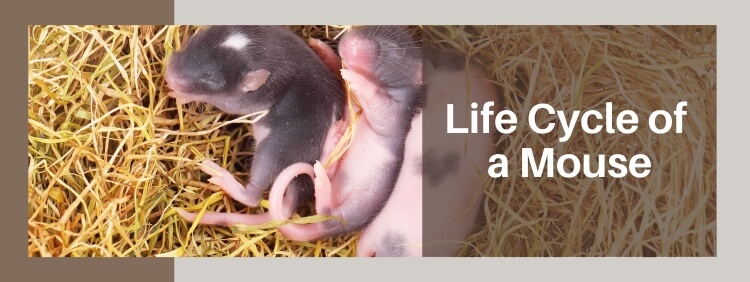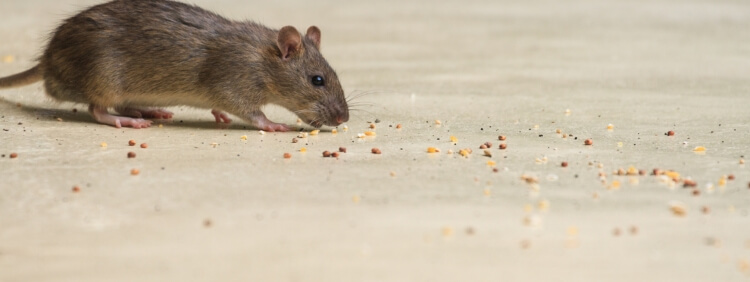Toronto Pest Control: The Life Cycle of a Mouse From Birth to Adulthood

As pest control experts at Truly Nolen Canada, we often address concerns related to mice. Understanding the life cycle of a mouse — from its vulnerable beginnings to its resilient adulthood — is crucial for effective rodent control in Toronto. These small mammals navigate a complex journey as they grow, facing a myriad of challenges within urban environments. Shortly after birth, their survival hinges on finding sustenance and warmth, often leading them closer to human habitats, which can inadvertently become hotspots for infestations.
The lifespan of a mouse, typically around 12 to 18 months in the wild, is a testament to their adaptability and rapid reproductive rates, which make proactive measures essential in what pest control does for mice. Our professional approach at Truly Nolen is designed to manage and prevent unwelcome guests, ensuring the safety and comfort of your living spaces without compromising on the well-being of these natural inhabitants.
Seasonal Reproduction: The Intriguing Breeding Cycle of Mice
Mice have a fascinating breeding system, which is greatly influenced by environmental conditions. They tend to mate more frequently during times of resource abundance, typically in the spring and fall seasons.
The reproductive process starts off with the courtship, where the male mouse woos its potential partner through an intricate dance. Once the female accepts the male’s advances, mating takes place.
After mating, the gestation period for mice lasts just about 20 days, after which the female gives birth to a litter consisting of 5 to 12 pups. These pups are born hairless, with their eyes and ears closed. A newborn mouse is extremely vulnerable and is entirely dependent on its mother for survival.
Without a doubt, understanding these aspects of mice reproduction can arm you with the knowledge necessary to handle a mouse situation and can significantly contribute to the process of rodent control. Truly Nolen’s pest control experts are here to help you with this daunting task.
The Average Lifespan of a House Mouse: Facts and Factors
The lifespan of house mice, Mus musculus, can vary greatly depending on several variables. In a perfect, predator-free environment like a lab, these little mammals can live up to 2 or 3 years. However, when exposed to conditions in the wild or residential areas, this lifespan is generally reduced to around just 1 year.
This significant fluctuation is due to various factors that can impact the life expectancy of a mouse, such as the presence of predators, access to food and water sources, the climate, and exposure to diseases or parasites.
Predators such as cats, birds of prey, and even certain types of insects can pose a substantial threat to mice’s survival. Similarly, harsh weather conditions can be hugely detrimental to a mouse’s lifespan. Extended periods of elevated or extremely low temperatures can severely impact their ability to find food and reproduce effectively when food sources are scarce and climatic conditions are harsh.
Access to clean food and water sources also significantly influences their longevity. Notably, mice living near humans often have access to more varied and reliable food sources, contributing to their extended lifespan in these environments. However, this might also expose them to human-made threats such as traps or poison.
Finally, diseases and parasites can drastically shorten the lifespan of mice. As they’re prone to numerous illnesses and parasites, especially when living in close quarters with other mice, this may represent a significant challenge to their survival.
Keeping a keen eye on population dynamics and understanding the factors impacting mouse longevity are profoundly important in the world of pest control. Mice reproduce quickly and adapt to their environment efficiently; thus, any fluctuations in their lifespan can have substantial impacts on the overall mouse population in an area. Effective pest control requires deep knowledge of this life cycle and the use of pest management strategies specially tailored to these dynamic creatures.

The Role of Mouse Lifecycles in Effective Pest Control
Understanding the intricacies of a mouse’s lifecycle is a crucial part of the pest control process. Doing so enables a targeted approach that can efficiently deal with an infestation while causing minimal harm to other wildlife.
Firstly, pinpointing the exact stage of a mouse’s development can allow for careful removal or addition of specific resources, which in turn can manage the progression of their lifecycle. For instance, newborn mice, termed ‘pups’, are highly dependent on their mothers for their first three weeks. Identifying a nest with pups allows the removal of the entire mouse family, consequently preventing the growth of the colony.
Mature mice, fully weaned and able to reproduce, present an entirely different aspect of the problem. As they can produce around 5 to 10 litters per year, recognizing a breeding pair and removing them swiftly can curb the colony’s expansion.
Adulthood in mice is signalled by their fully grown size, as well as their skin colour, which transitions from pink to grey. Adult house mice have a unique musky odour that can also be a signal for pest control experts such as us at Truly Nolen to act on.
Beyond this, understanding mouse lifespan (around one year in the wild), reproduction rates and times of the year when infestation is likely can also be highly beneficial in strategizing the most effective pest control measures.
At Truly Nolen Canada, our pest control approach synthesizes these insights about mouse lifecycles with environmentally responsible techniques. This ensures a comprehensive plan for your home or business, eliminating mouse infestations and offering long-term protection.
Call Truly Nolen for Rodent Control in Toronto
At Truly Nolen Canada, we take pride in our deep understanding of mice, their life cycles, and the custom solutions we craft for effective pest control. As a pest control expert, we recognize the dire need to keep your living and working spaces free from unwelcome rodents. Thankfully, our expertise in rodent lifecycle and behaviour allows us to implement highly efficient and targeted strategies against their intrusions.
Our knowledgeable and experienced team monitors the mouse population closely while taking note of their stages of development. We strategically place deterrents and traps during the time when their populations are growing, most notably during the breeding seasons. This approach greatly enhances our rodent control effectiveness, providing you peace of mind throughout the year.
Moreover, we understand that different situations require unique and tailor-made control strategies. This is why we conduct comprehensive property inspections to measure the acuteness of an infestation. Knowledge about the lifecycle of mice informs our tactics, equipping us to counter them at different stages of their development. This significantly reduces the possibility of a recurring mouse problem.
But our expertise extends beyond mere pest control. We are invested in educating homeowners and business owners alike about preventive measures. By identifying potential entry points, sealing them, and maintaining overall cleanliness, it is possible to deter these rodents from settling in your premises in the first place. Keeping top of mind the facts about mouse behaviour can make a world of difference in preventing an infestation.
Choose Truly Nolen Canada for a solution that not only eliminates the existing mouse problems but also prevents future infestations. You can depend on us to deliver the most comprehensive rodent control in Toronto. Let us help you maintain a safe and clean environment free from the worries of unwanted rodent interference.
Contact us today to schedule your comprehensive pest inspection!